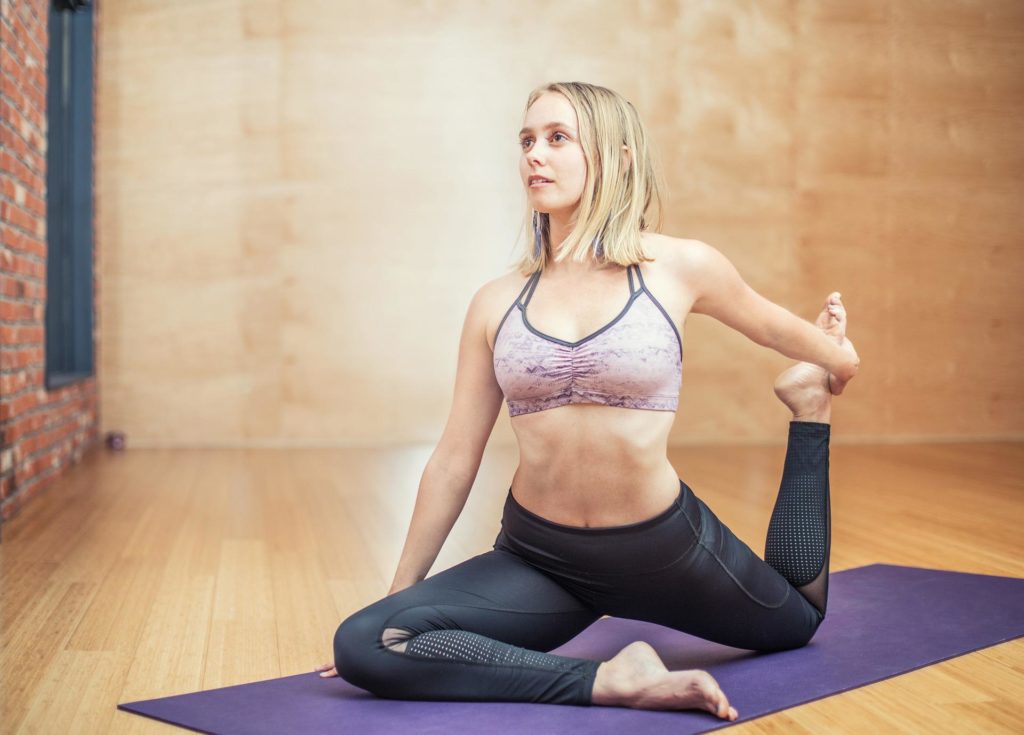
We are training more now than ever before – the pandemic is forcing us to monitor our physical activity even more closely. But is obsession with exercise really harmful?
We live in the “age of fitness,” at least as Jurgen Marchukat states in his book The Age of Fitness. Indeed, despite the fact that over the past 12 months our training has faced a string of restrictions, the fitness industry still reached a record value of more than $ 100 billion. Whether we do yoga online at lunchtime or late at night, we live in a fitness-focused society. But with the growing demand for not only getting fit, but striving for a beautiful body, is it true that our obsession with fitness is getting unhealthy?
Fitness boom
The fitness industry has experienced a boom over the past 20 years. According to Alex Hawkins, senior editor of strategic forecasting at consultancy The Future Laboratory, “The growth of the culture of gyms and fitness clubs has accelerated so much mainly because consumers are becoming more health conscious, but also because this sector is heavily commercialized as an essential part of the way of life ”. We used to keep fit just for the health benefits. Today we do fitness not only in pursuit of wellness and self-development, but also to maintain a certain lifestyle with luxurious sportswear and cool fitness classes. Hawkins also connects the demand for fitness with the popularity of social media, “where the ideals of beauty and body are perfected.” The pandemic has naturally increased our obsession with fitness as the threat of Covid-19 forces many of us to focus more on our health and overall well-being. In 2020, luxury bike company Peloton increased sales by 172 percent, while UK running app Couch to 5K was downloaded over one million times. The number of uploaded runs and bike rides on the Strava app has nearly doubled in the past 12 months. Since most leisure activities were unavailable due to global restrictions, physical activity was one of the few things we could freely practice, so this rise in the popularity of active pursuits shouldn’t come as a surprise.
“I definitely feel like our cultural obsession has intensified during the pandemic,” says Dr. Nadia Craddock of the Center for Appearance Research. This in itself is not a bad thing. “Of course, exercise, movement, sports and general physical activity are associated with a wide range of benefits for our physical and mental health, as well as for our social life and society.” However, Dr. Craddock notes that the need to keep fit, especially during a pandemic when there is little else to do, can actually have negative consequences for both physical and mental health.
Look athletic or be healthy
In his book, Marchukat argues that the main goal of fitness today is “to have, shape and maintain an athletic body.” But everything looks problematic when appearance and good physical fitness merge together. “External proof of an athletic body may be considered more important than fitness,” he continues. It is enough to spend just a few minutes on Instagram to find out that a person’s athletic appearance does not necessarily correspond to his physical capabilities, but rather is just a shell. And when fitness is viewed as a way to achieve aesthetic results, it can nullify the functional benefits of exercise, explains Dr. Craddock.
Emily, 31, who was a regular athlete, found closing gyms during lockdown a daunting challenge, so she signed up for online fitness classes on Instagram. “It was great to have access to daily workouts,” she says. “I was inspired by the way a trainer looked, and when I had nothing to do, I started following on Instagram many different fitness influencers with amazing bodies.”
Emily, driven by the desire to look as fit as the Instagram fitness guru she saw in her feed, instead of focusing on exercise and her health, quickly became obsessed with exercise at her own expense. “Walking for two hours every day and re-watching the training videos, I saw results on my body that at first seemed amazing, but then I felt myself becoming more critical of my appearance and starting to complicate my goals more and more.”
But why? Undoubtedly, fitness training for aesthetic results is just another step on the path to excellence. And will someone be able to say exactly when it will be achieved? According to Dr. Briona Bamford, clinical director of the Center for Eating and Body Image Disorders in London, an unhealthy relationship with exercise is when “it is prioritized over other aspects of life such as relationships, activities, work or physical health.” Also, studies show that the more you exercise, the higher your risk of developing addiction, especially among more vulnerable people. ” Obsession with physical activity can lead not only to physical overstrain of the body, but also to mental and emotional overstrain,” says Dr. Bamford, explaining that the obsession with fitness can become overwhelming, and the consequences of not exercising can lead to anxiety, bad mood, feeling inadequacy and failure.
Healthy balance
The fitness industry is constantly expanding and integrating seamlessly into our lifestyles, so our obsession is not going anywhere. So how can we protect ourselves from falling into the trap of unhealthy obsessions? Dr. Craddock insists that sports should not be seen as a form of punishment, and suggests focusing on activities that are fun. “You don’t have to follow the latest fitness trends, you don’t have to track every step, and you don’t have to spend money to reap the benefits of exercising.” If you’re not sure where to start, Dr. Craddock suggests thinking about the activities you enjoyed as a child: “I like to think of physical activity as a chance to be silly and playful, and an opportunity to have fun and make friends.” For Marchukat, understanding the lens through which we perceive our cultural relationship to fitness is an important first step towards rethinking the role it plays in our lives. The next step is to be inspired by those who have managed to avoid falling into the fitness trap. Marchukat believes that those less affected by these social pressures, preferring to lie back and relax on the couch, are paving the way for a new kind of resistance. So maybe instead of rushing to the gym again, spending more time with your inner child – whether it’s joy or relaxation – is the healthiest antidote to the past year of isolation.




